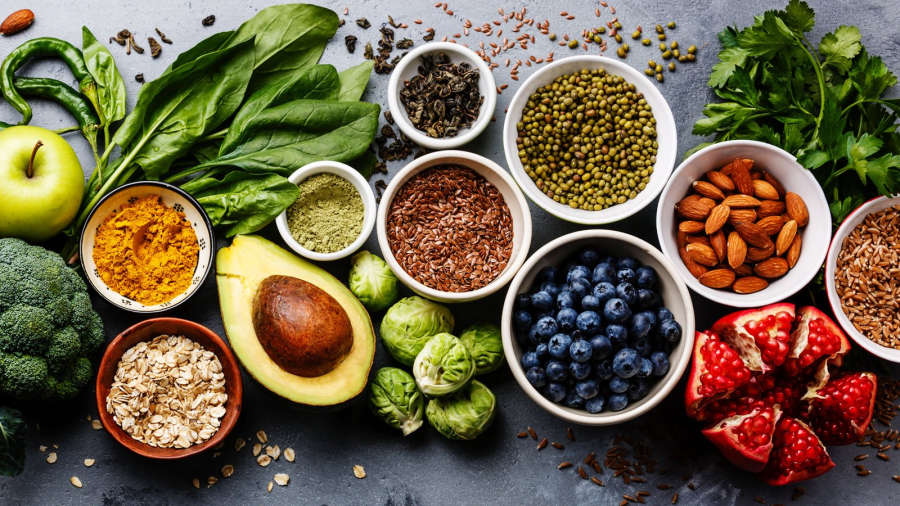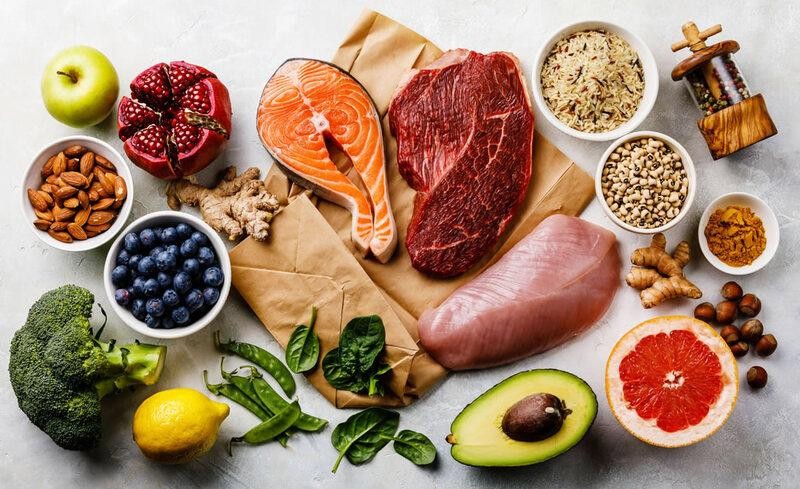The research by Linh Bui from Harvard University states that “these plant-based healthy foods are associated with a reduced risk of chronic diseases such as heart disease, colon cancer, diabetes, stroke, and overall mortality”. The scientists analyzed the diet and health records of 100,000 individuals over a 30-year period. The results showed that individuals who followed a plant-based diet and chewed their food thoroughly had a 15% lower risk of dying from cancer or heart disease. This group also had a 20% lower risk of dying from neurodegenerative diseases such as Alzheimer’s and a 50% lower risk of respiratory diseases.

In contrast, individuals who consumed less plant-based foods had a higher risk of diseases, aging faster, and shorter lifespan.
Fruits and vegetables are a healthy diet that helps prevent aging due to their abundant vitamins and minerals. They also provide excellent sources of fiber, which promotes better gut health. Non-starchy vegetables such as asparagus, kale, and watercress are better than starchy vegetables like potatoes and beets.
You can consume a large amount of non-starchy vegetables without worrying about weight gain. This group is highly diverse.

Whole grains such as brown rice, oats, and whole wheat bread provide more fiber and vitamins compared to refined grains (white rice, white flour, etc.).
Nuts such as almonds, walnuts, and cashews are rich in protein and are good for the body as they provide healthy protein without harmful fats. Unsaturated oils, such as olive oil and avocado, contain good fats and other nutrients that help prevent heart disease and diabetes.

Eggs contain healthy proteins that aid in weight loss, as well as vitamins, minerals, and antioxidants. However, excessive consumption can raise cholesterol levels. The recommended intake is up to 3 eggs per day.
Lean meat is a good source of protein, vitamins, and minerals in the diet. However, it is advisable to choose lean meats with low cholesterol content, such as chicken breast, and avoid consuming excessive amounts of red meat and processed meats like bacon, sausages, deli meat, etc. It is recommended not to consume more than 70g of meat per day.
Plant-based foods are rich in vitamins, minerals, and fiber, which promote overall health and help prevent aging. Specifically, non-starchy vegetables like asparagus, kale, and watercress are excellent choices as they can be consumed in large quantities without worrying about weight gain.
Yes, whole grains such as brown rice, oats, and whole wheat bread provide more fiber and vitamins compared to refined grains. Additionally, nuts like almonds, walnuts, and cashews are a great source of healthy protein, and unsaturated oils like olive oil and avocado contain good fats that help prevent heart disease and diabetes.
Eggs and lean meat can be part of a healthy diet when consumed in moderation. Eggs contain healthy proteins, vitamins, minerals, and antioxidants, but excessive intake can raise cholesterol levels. It is recommended to limit egg consumption to up to 3 eggs per day. Similarly, lean meat is a good source of protein and nutrients, but it is best to choose low-cholesterol options like chicken breast and limit red meat and processed meat consumption. The recommended intake is no more than 70g of meat per day.



































